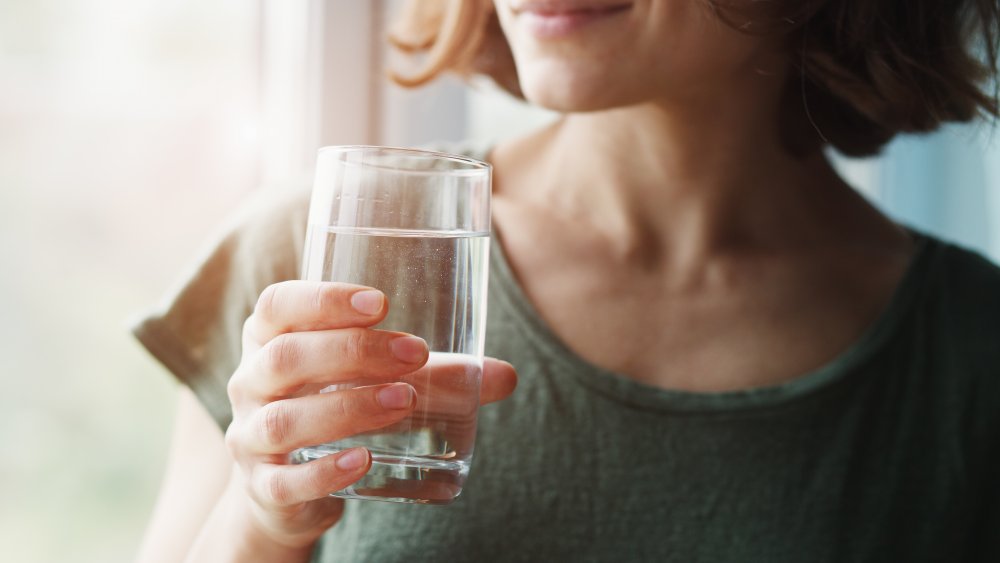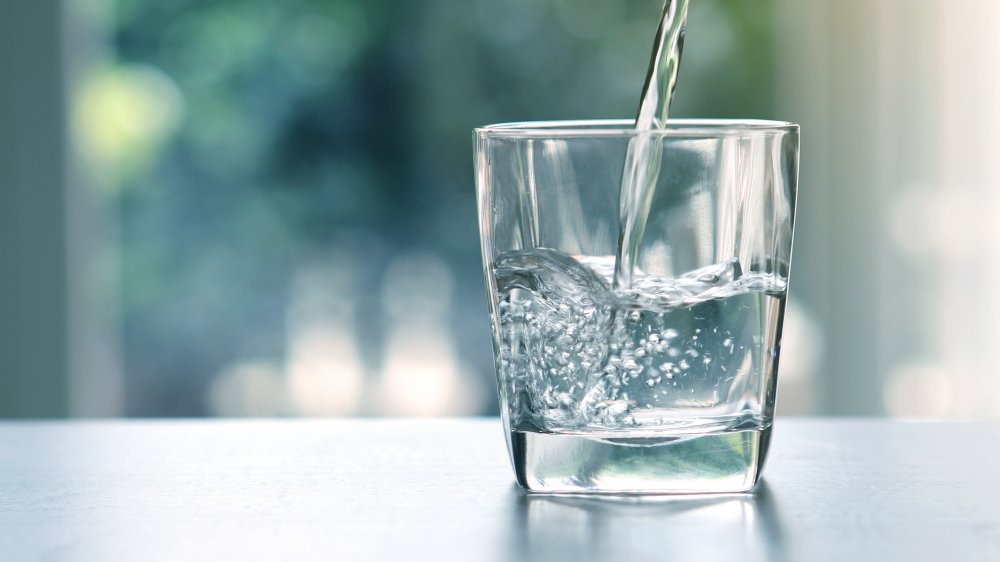The Truth About How Much Water You Should Drink Every Day
If you've ever wondered how much water you should be drinking every day, you've probably found that the benchmark is somewhere between six and eight glasses daily. However, according to the CDC, this isn't necessarily true for everyone, as consumption recommendations vary based on a number of different factors. As Drew Sinatra, a board-certified naturopathic doctor, explained to Real Simple: "Age (elderly people need less water), activity level (challenging workouts and sauna therapy require more water), diet (high protein, sodium, or fiber-rich diets require more water), climate (hot, dry climate, or an elevated terrain require more water), and certain medications are some factors that might affect how much water an individual needs."
Ultimately, it's more about paying attention to your body. "If you listen to your body, it'll tell you when it's thirsty," says Courtney Kipps, consultant sports physician and medical director of Blenheim and London Triathlons (via BBC).
Pay attention to signs of dehydration
Rather than counting the number of glasses of water you need to drink each day, you simply need to focus on avoiding dehydration. How to know if you need extra H2O? Other than the obvious sign of feeling thirsty, Self states that symptoms of dehydration include dry lips, bad breath, headaches, and fatigue. You also can always look to your toilet bowl. "If your urine is light yellow, you're probably getting enough fluids. If it's dark or smells strongly, you probably need more water," advised Jessica Fishman Levinson, founder of nutrition counseling company Nutritioulicious.
Oh, and FYI, water isn't the only thing that's good for hydration. "Your body absorbs water in foods just like it would liquids," Levinson revealed. According to Insider, cucumber, watermelon, celery, blackberries, radishes, spinach, and carrots are some of the most hydrating foods you can eat. The most surprising? Yogurt, which is actually 88 percent water.

